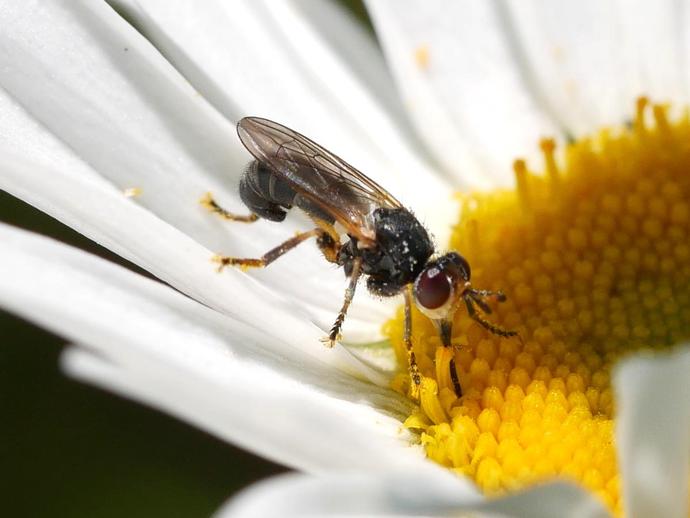March 6, 2021
We're reaching into the archives for today's #BenInNature update presented by our friends at Carter Bank & Trust! The following post was originally published on May 30, 2020.
We generally think of flies as being attracted to gross stuff, but that isn't always the case. According to VMNH Executive Director Dr. Joe Keiper, this fly belongs to the family Conopidae and is likely a member of the genus Zodion. This family is commonly referred to as the "thick-headed flies" (which seems a little mean). There are about 800 species within this family, and many of them are mimics that resemble wasps or bees.
There are a couple of things that all members of Conopidae have in common. For one, they like to visit flowers to lap up the sweet nectar, just like the pictured fly is doing. Two, their larvae are all internal parasites, usually on bees and wasps! When it comes time to lay eggs, the female fly will intercept a bee or wasp and inject her eggs between the segments of the host's abdomen. You'll notice that the pictured fly has a sort of "hooked" abdomen; apparently this works a bit like a can opener and makes it easier to pry the host's segments apart! When you see this little fellow peacefully sipping nectar inside a flower, it just proves that you should never underestimate the quiet ones.
ABOUT #BenInNature
Social distancing can be difficult, but it presents a great opportunity to become reacquainted with nature. In this series of posts, Administrator of Science Ben Williams ventures outdoors to record a snapshot of the unique sights that can be found in the natural world. New updates are posted Monday - Friday, with previous posts highlighted on the weekends. This series of posts is made possible thanks to the support of VMNH Corporate Partner Carter Bank & Trust (www.cbtcares.com)
NATURE PHOTO IDENTIFICATIONS
If you discover something in nature that you would like help identifying, be sure to message us right here on Facebook with a picture (please include location and date of picture) and we'll have our experts help you identify it!

 Hours & Admissions
Hours & Admissions Directions
Directions

